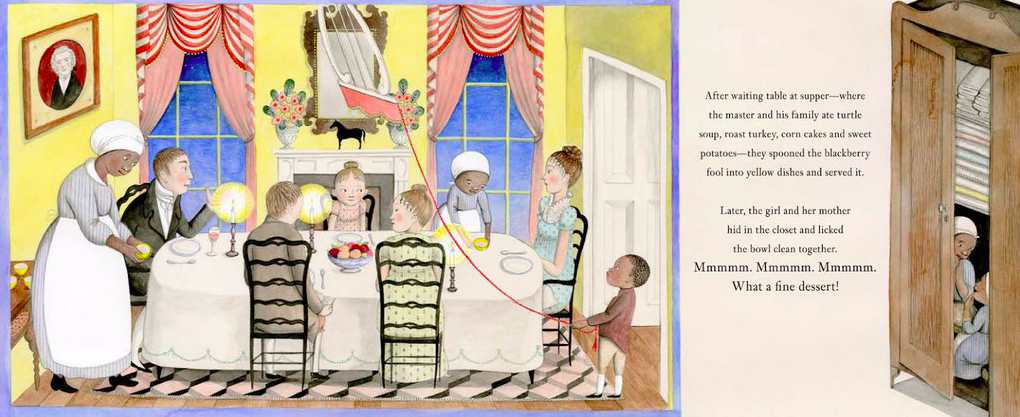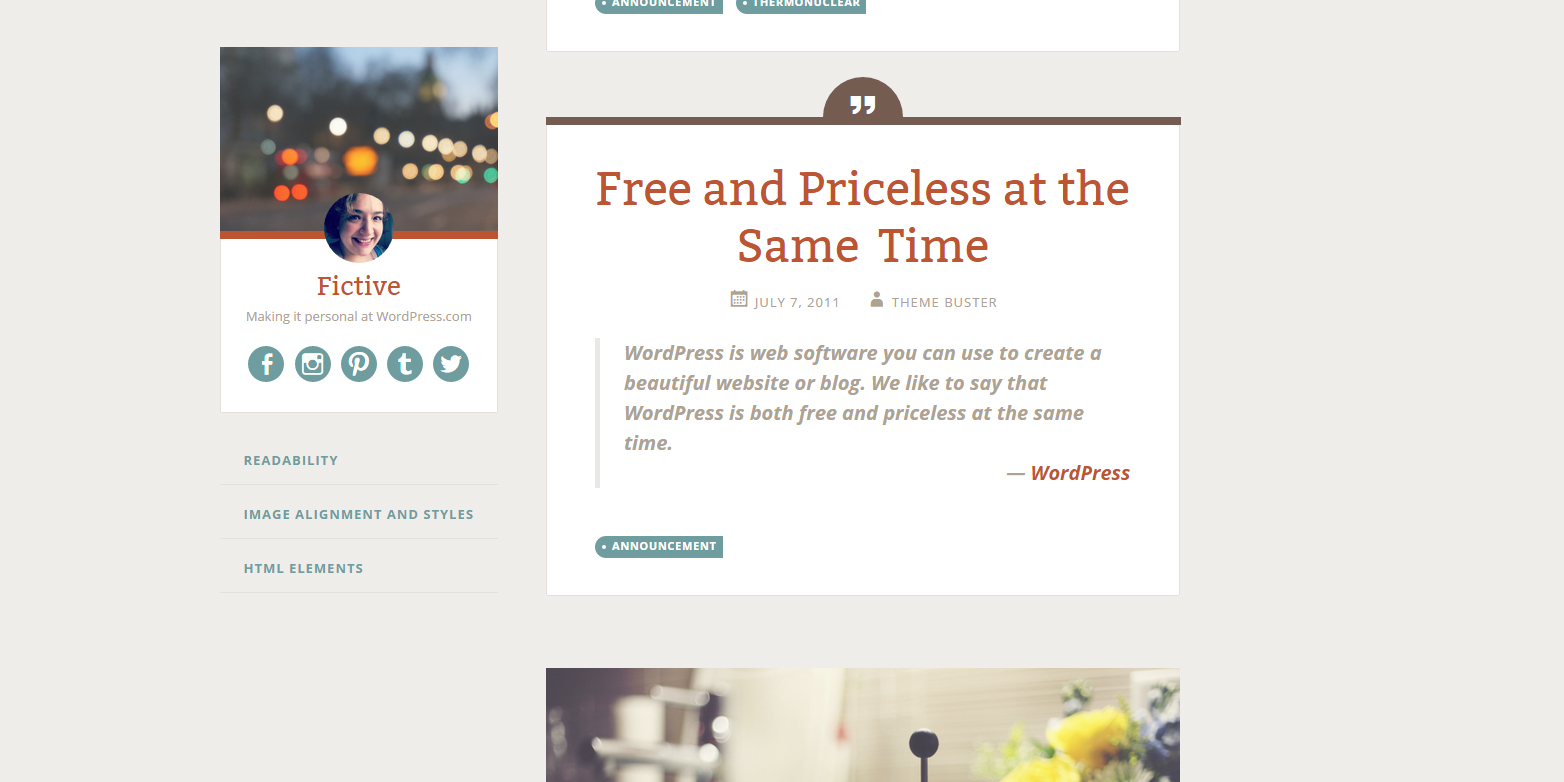The other day on Twitter Sofia Samatar laid down some truth:
Yes. All the yesses. +1, co-sign.
Every author should have a website, even if you’re just beginning and have only one thing published. Heck, even before you have things published. You should always take as much control over your online presence as you can. That starts with having a good website.
Having a good, clear, professional-looking website does not require a lot of technical knowledge, a lot of money, and a lot of maintenance. But if you’re not very technically inclined and feel intimidated by creating a website, there are people who are happy to help you. Some will do so for free, some for a small fee, and some who are pros and charge pro rates. But before we get into that, let’s break down what an author website should have on it.
The six elements you need:
- Homepage
- Blog
- About
- Publication List
- Events page*
- Contact
Homepage
With many author sites it’s a good idea for this to be a static page. Yes, my homepage is my blog. I regret this decision! Especially now that I don’t blog here as much. I’ll likely change it soon. Having a static page allows you to highlight what’s new–such as a new book or story–and give an at-a-glance view to your visitors to the important info about you and serve as a portal to the rest of the site plus other important sites. This is where you’ll list the social networks you’re on and your profiles on Amazon, Goodreads, etc.
Blog
BUT I DON’T WANT TO BLOG you might be screaming right now. That’s fine. Just because I say you should include a blog it doesn’t mean you have to update that blog every day or hour. You don’t even need to call that section Blog. You can call it News, Announcements, or something similar. The purpose of this section is for you to have an easily updatable place to put the kind of news and info readers like. Not just when your book is published, but when it gets a nice review, when it’s nominated for or wins an award, if you’re interviewed or otherwise mentioned in the press, pictures from your book signings or other appearances, when you publish a new story, when you start selling merch, or whatever.
Of course, if you want to have a traditional blog, even better. But don’t feel compelled to make your blog section an online journal if that’s not your speed.
About
In addition to talking about yourself and your amazing work, your About page should contain or have links to your official bio (I have a public Google Doc with a long and short version), your official photos (link to the hi-res versions of images, don’t embed them) and photo credits, and hi-res versions of your book covers. This makes it really easy for folks to grab this info without you having to search it out each time.
This is also the place to list your social network and other profiles.
Publication List
This one is self-explanatory. The only thing I’ll suggest here is that you make it attractive! However, a simple list with links is fine, too.
Events Page
This one had a star next to it because it’s only really necessary if you make a lot of personal appearances and do many signings. Those who’ve published a book will need this section, maybe not if you’re just publishing short stories at the moment. In that case, the announcements on your blog should suffice, just be sure you have a blog category called Events or something like that so they’re easy to find.
There are lots of ways to maintain an Events page and I have no particular best practices. Check out what other authors do for ideas. I do suggest including info on this page on how people can request to book you for events, signings, and the like.
Contact
Always have a way for people to contact you! Always. I prefer to have contact forms because then no one is getting your actual email address unless you email them back. And it cuts down on spam. And if you don’t mind if fans ping you on social media, mention that here, too.
I Am Not Tech-Savvy And Can’t Make My Own Website
That’s okay! There are several options below for creating a website easily without needing technical acumen. But if you still feel nervous about it, there are people who will help you. Some for free, some will charge a fee.
I used to design websites for a living. I don’t anymore, but I still set up WordPress for folks who need it because, for me, it’s simple and doesn’t take much time. If you really need an author website and have $75, I will set it up for you on WordPress.com and walk you through the basics and show you how to update it on your own.
If you need a more complex website, or want an installation on your own host (explained below) and a customized design, there are other folks who can help you. My friends Stephanie Leary and Jeremy Tolbert are both WordPress experts and make beautiful sites. They charge pro rates. They are worth it.
If you’re a person willing to help authors create simple websites for free or for a fee, scroll down to the comments and let us know! Please say whether you work for free or charge and include a link to your website or portfolio.
What Should I Use To Make My Website?
I always suggest that people use WordPress to make author websites. WP is a blogging platform, but it’s easily used as a whole site management tool. It makes updating simple, and you can get a nice look without knowing any code. It’s also free. You can set up a site on WordPress.com or get your own hosting and set it up on your server for free.
There are other options, such as drag and drop site builders on SquareSpace or similar. I’m not a huge fan of those, but as long as they allow you to have all the elements mentioned above with little fuss and at your level of technical comfort, go with what works for you.
I do not suggest using Blogger, because it sucks. LiveJournal and DreamWidth won’t work because they are mainly blogs with a little bit of functionality for static pages, but not enough.
Tumblr is a possibility because you can create static pages, add your own domain name, and mess around with themes enough to customize. However, I find it all really hard compared to WordPress and the resulting site not as functional or easy to maintain.
WordPress.com or Host It Myself?
If you want to set up a site completely for free, then you can go with WordPress.com. Someone on Twitter asked if a site URL like authorname.wordpress.com projected an unprofessional vibe. In my experience, not as much as authorname.blogspot.com or an AOL.com email address. It looks perfectly legit to be on the .com site.
If you’re still nervous about it, you can put your own domain on a WP.com site so it looks like authorname.com even though you’re still using WP.com on the backend. WordPress will sell you a domain name themselves, but it’s a bit less expensive to buy the domain elsewhere and pay the fee to attach it to your WP.com site. I use NameCheap where .com domains cost less than $11 a year.
The drawback with WordPress.com is that you have to use the WP themes they list, you can’t install one you just find somewhere. You’re also restricted to specific plugins. Plugins are awesome–they add extra functionality to WordPress and there are a handful I cannot live without.
For the most control over themes, plugins, and domains, you’ll need to get your own hosting account. My main advice here: DO NOT GET GODADDY. It’s just best to look elsewhere. I use MDD Hosting and pay less than $20 per month. There are tons of good hosting options out there–ask for suggestions on social media if you don’t already know of a company. And always read the reviews before you sign up.
Not sure if you need a hosted site or can just stick to WP.com? Start out on WP.com. You can migrate everything, including comments and images, over to a hosted WordPress installation later if you decide to switch. The process is easy.
You Need A Good, Clear Website Of Your Own
You don’t need to spend any money to get one started, you don’t need to spend a lot of money to get the little extras that make it feel even more professional, and you don’t need to know anything about code to create and maintain it. If you need help, help is available. If you have questions, ask. Let there be no barriers to you having a good, clear website.
Footnotes






